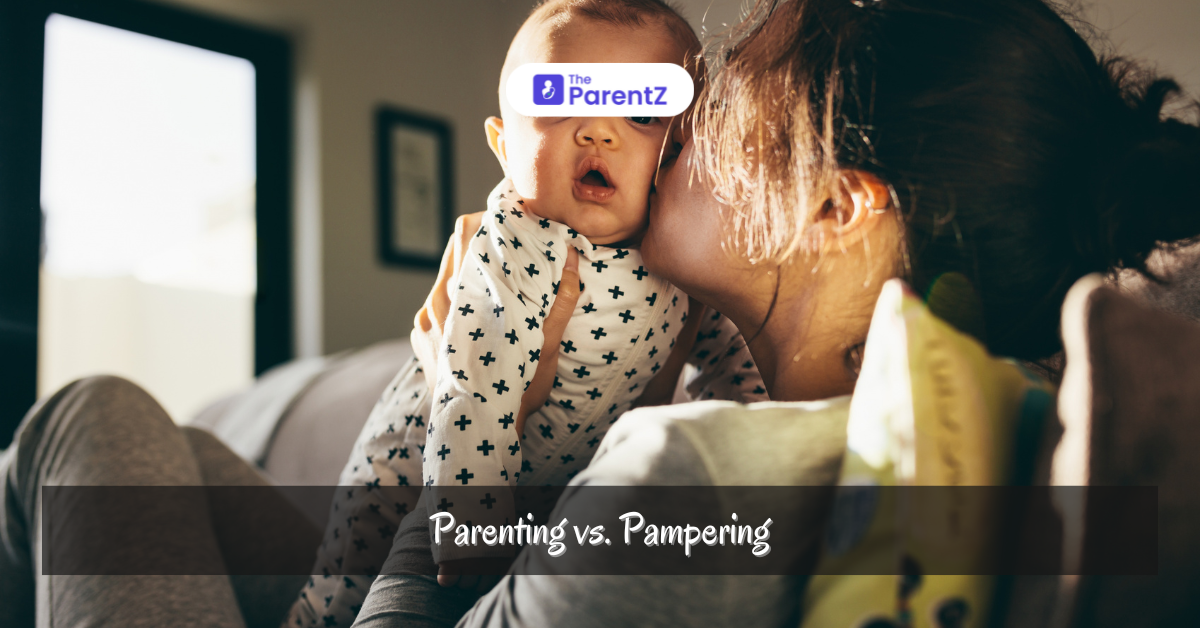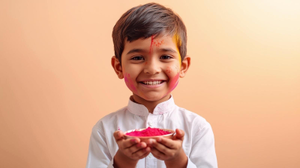Parenting is a vital, multifaceted process aimed at nurturing and shaping a child into a responsible, independent individual. The ultimate goal of parenting is to provide the right balance of care, discipline, and freedom, helping children grow emotionally and socially. On the other hand, pampering involves showering children with excessive attention, comfort, and indulgence, often at the expense of discipline or boundaries.
The line between parenting and pampering can be difficult to define, as every parent wants to ensure their children are happy and well cared for. However, when the scales tip too far toward indulgence, pampering can hinder a child's development. This article explores the differences between parenting and pampering, delving into the impact of each approach on children’s long-term emotional and social growth, while also discussing how parents can find a balance between love and limits.
What is Parenting?
Parenting involves guiding, nurturing, and disciplining children to help them become self-reliant and emotionally stable individuals. It encompasses a variety of responsibilities, from providing basic necessities like food and shelter to teaching life skills and imparting values. Effective parenting also involves setting boundaries, establishing routines, and providing consistent discipline to help children understand limits and consequences.
A key aspect of good parenting is fostering independence. Children need to learn how to handle challenges, make decisions, and face the natural consequences of their actions. By doing so, parents prepare them for adulthood, where self-regulation and problem-solving skills are crucial.
Parents are also tasked with helping children develop healthy emotional responses. By modeling empathy, emotional intelligence, and conflict resolution, parents teach their children how to navigate interpersonal relationships. Parenting requires constant adjustment based on the child’s age, temperament, and changing needs. Ultimately, the goal is to provide the child with the skills, confidence, and resilience necessary to thrive in the world.
In summary, parenting is a balanced approach that combines love, guidance, discipline, and independence, all aimed at raising well-rounded and emotionally capable individuals.
What is Pampering?
Pampering in a parenting context is when a parent excessively indulges a child’s desires and whims, often at the expense of discipline or boundaries. Unlike the healthy nurturing and support seen in traditional parenting, pampering focuses more on providing comfort, pleasure, and material goods, sometimes to avoid conflict or disappointment.
Pampered children are often given anything they ask for, with little to no limits imposed on their behavior. This can range from constantly fulfilling their material demands—such as buying toys, clothes, or gadgets—to avoiding setting necessary boundaries around behavior, responsibilities, or discipline. Overprotection, where a parent shields a child from every challenge or difficulty, also falls under pampering.
While pampering may stem from a place of love, it denies children the opportunity to experience important aspects of growth, such as delayed gratification, problem-solving, and facing consequences for poor behavior. When children are overly pampered, they may struggle with frustration, lack of responsibility, and an inability to cope with disappointment.
Pampering can also create a sense of entitlement, where children expect things to always go their way, and when they don’t, they react with anger, confusion, or helplessness. Therefore, pampering, though seemingly a form of love, can unintentionally set children up for difficulties later in life.
Consequences of Pampering
The consequences of pampering can be far-reaching and impactful, affecting both the immediate behavior and long-term development of children. In the short term, children who are pampered may struggle with understanding boundaries and managing their emotions, particularly when they do not get their way. Over-indulged children may become reliant on their parents to solve all their problems, leading to difficulties with independence and decision-making.
- Dependency: One of the most immediate effects of pampering is creating a dependency on parents or caregivers. Since pampered children are often not given the chance to solve their own problems or make decisions, they may rely on their parents to handle any obstacles that arise. This dependency can stifle the development of critical thinking and problem-solving skills.
- Poor Coping Skills: Pampered children often have difficulty coping with disappointment, rejection, or failure because they are rarely exposed to such experiences. This lack of emotional resilience can lead to frustration, anxiety, or anger in situations where things do not go their way.
- Entitlement: Constantly giving in to a child’s demands can foster a sense of entitlement. Pampered children may expect others to always accommodate their needs, making it hard for them to adjust in environments where they are not the center of attention, such as school or later in life, the workplace.
- Insecurity: Surprisingly, pampering can also result in feelings of insecurity. Overprotecting or shielding a child from difficulties can send the message that the world is too dangerous or that the child is incapable of handling challenges, resulting in low self-esteem and anxiety.
These consequences emphasize the importance of setting boundaries and teaching children essential life skills, even if it means allowing them to face challenges or disappointment.
Balanced Parenting
The key to successful parenting lies in finding a balance between nurturing and discipline, between providing support and allowing children to face the natural consequences of their actions. Balanced parenting does not mean being permissive or harsh; it means creating a framework where love and limits coexist harmoniously.
- Setting Boundaries: Healthy boundaries are crucial for children’s development. They help children understand what behavior is acceptable and what isn’t. By consistently enforcing rules, parents teach children responsibility and accountability, which are essential skills for adulthood.
- Fostering Independence: Rather than constantly solving problems for their children, parents should encourage them to think critically and independently. This could involve giving them age-appropriate responsibilities, like helping with chores or managing their schoolwork. Allowing children to make mistakes and learn from them is a valuable part of this process.
- Encouraging Emotional Resilience: Parents should teach children how to handle negative emotions like frustration, sadness, and anger in healthy ways. This includes helping them name their emotions, express them constructively, and learn from challenging situations.
- Providing Emotional Support: While discipline is important, so is emotional connection. Balanced parenting ensures that children feel safe, valued, and loved, even when they make mistakes. This emotional safety net helps children develop self-confidence and trust in their relationships.
By focusing on both nurturing and boundaries, parents can raise children who are confident, resilient, and capable of handling life’s challenges.
Conclusion
In conclusion, while it is natural for parents to want to protect and provide for their children, it is essential to avoid the pitfalls of pampering. Parenting is about preparing children for the real world, which includes teaching them to cope with difficulties, set boundaries, and become independent. Pampering, on the other hand, can hinder these essential skills and lead to long-term negative consequences. Striking the right balance between love and discipline is crucial in helping children grow into well-adjusted and resilient adults.





Be the first one to comment on this story.